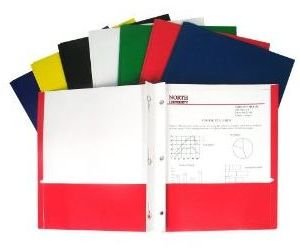How to Take and Organize College Lecture Notes
The Essence of the Lecture
College lectures are different than high school classes. In a college lecture the instructor may seem to be rattling off information to you, yet what he or she is saying is important. A lecture is just that, the professor may or may not use the chalk/ whiteboard or even handouts to give notes; he or she may just stand there and speak.
Get Organized
Most people will use pen and lined paper to take lecture notes. I recommend using loose leaf paper so you can move pages in your
notebook and also add any sheets the professor provides. This would require using either a three ring binder or a 2-pocket notebook with prongs. Again, it depends on preference and how intense a course is. For a more intense course, a 2-pocket notebook may not suffice to hold all of the information provided, but for a less intense course it is less weighty to carry and less expensive. If the 2-pocket notebook is chosen, it is important to fill it with blank paper before class begins so you have enough room to take notes.
Once you have decided on the notebook, here’s how to take and organize your notes for a great semester:
-
Write all notes down the center of the lined paper; do not fill the page from left to right. Leave space on the right hand side (at least 2 inches or more) and left hand side of the paper. The left side is left blank for “notes-to-self” when you get home and are reviewing your lecture notes. The right hand side is for notes to take from the book.
-
Review lecture notes every day. Read the notes within 24 hours or your short term memory will have forgotten the information. Write “notes-to-self” on the left hand side of the page. This may be a summary of what the teacher said, questions you may have, or things you want to look further into.
-
On the right hand side of the page, write the book passage that relates to the notes in class, page numbers, and anything you feel is relevant to the lecture notes that you read in the book. Do not rewrite the passage; it will be too time consuming. Highlight the most important sections and write a summary here.
In this way, all of the notes are organized in front of you in one place and studying will be very easy. All you will have to do when it comes time to study is to open the book to the pages listed and read the notes.
During Lecture
While you are in lecture, try to stay focused and avoid distractions. Those fifty minutes (for undergrad courses) fly by. While taking notes (remember down the center of the page) pay attention to clues. The professor is not going to say, “Write this down”, but he or she will give you clues that it is important information. Listen for:
Definitions- these will probably be on the exam.
Repeating- if the professor says it more than once, he is probably not losing his mind; it is probably going to be on the exam so star it!
Fluctuations in voice- if the professor becomes very emphatic about something, he or she probably thinks it’s important and it will probably be on the exam.
If you are unsure of what to write down, write it all down (but not word for word, just the facts the professor is providing). Do not worry about misspellings as they are your notes and can be corrected later.
More Tips:
Try using an outline form when taking lecture notes. It does not have to be a formal outline as no one is correcting you, but it may help you to organize your thoughts and what the teacher is saying.
For example:
A. Major Point
1.
a.
b.
2.
a.
b.
B. Second Major Point
1.
And so on.
Some students like to use a mini tape recorder to listen to the lecture again. Using a mini recorder is based on personal preference, how in-depth the material is, and your learning style. I found in college that it was really time-consuming to listen to the lecture again when returning home or back to the dorm, but again, it depends. Physiology lectures might be useful to record because it is hard to capture the processes on paper.
One more piece of advice; using this system of organizing lecture notes, re-reading the notes every day and keeping up with the reading, will make studying and acing the exam a piece of cake. You won’t need to cram because you will have learned it over time.
Image Credit: Amazon.com
